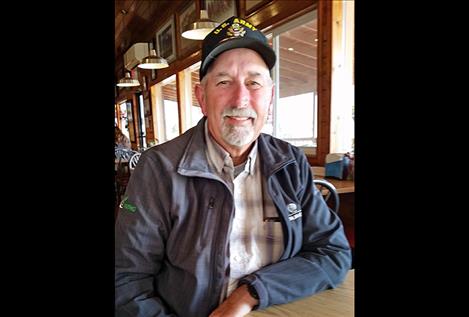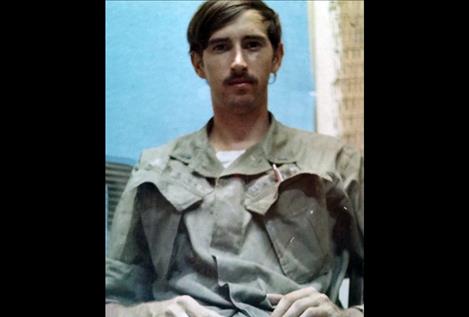Veteran Spotlight
Neal Rodney Bocksnick February 5, 1951 Cold War - Germany Viet Nam - Military Region IV U.S. Army Spec 4
Hey savvy news reader! Thanks for choosing local.
You are now reading
2 of 3 free articles.
If you were a recent high school graduate and you wanted to go to a mechanical school but were a little short of finances, what would you do? That was Neal Bocksnick in 1969 and he opted for his second choice, to get mechanical training through the military. He avoided the draft with a delayed enlistment in June and activation in October, but says he would have joined either way even if there were no draft.
Neal’s first stop was Fort Lewis, Washington, for basic training where he got his first monthly paycheck - $96 as an E-1. The military uses E1-E9 to assign pay grades. Neal already knew how to take orders, but in Basic he learned to take them without question because in battle there is no time for questions. He also was trained in weaponry although, being a farm kid, he already knew about guns. There were no discipline problems. The three platoons of 50-60 men in his company were nearly all volunteers, and only five in his platoon were draftees. They were kept busy from 5 a.m.-10 p.m. with no time to go off post or to get into trouble.
After nine weeks, including a week’s leave to go home for Christmas, Neal was sent to Aberdeen Proving Grounds in Maryland for Advanced Individual Training. This was a 28-week school for wheel-tractor mechanics.
After Aberdeen, and another 10-day leave to go home, he reported in September of 1970 to Fort Dix, New Jersey, and flew to Kaiserslautern, Germany, where he served for 7 and one-half months. His mechanic duties there, as a member of “Charlie” Company, were training Germans to operate and maintain big tractors, like Big Red from Nebraska.
Neal requested a transfer in April of 1971 and was flown back to Fort Dix. He was on his own to get home for another 10-day leave and when he got to O’Hare airport in Chicago, Illinois, he couldn’t get his 100-pound duffle bag tagged so he had to lug it from one terminal to another. Luckily the airline had him on a military travel status that guaranteed him a seat on the flights.
After his leave, Neal reported back to Fort Lewis in April, 1971, and then headed for Viet Nam. He traveled through Anchorage, Alaska; Yokota, Japan; and Cam Ranh Bay and Saigon, Viet Nam, to finally arrive at Can Tho, Viet Nam. He and three others from Germany were split up when they arrived in Viet Nam. Communications were not very good so he was not able to keep in contact with them.
There was a lot of action in the south part of Viet Nam but not so much in the delta area where Neal was stationed. He never really saw any of the “bad stuff” but he knows of others who did and who don’t talk about it. He was sent home early because action was winding down, although the war dragged on until 1975. At this point he had 4 and one-half months of his enlistment left. He was supposed to be reassigned to North Carolina, but he asked, “Instead, why not just discharge me?” The military said OK, and that was that.
The Viet Nam War was not popular and it was sad that the people back home didn’t support the troops. After Neal made up his mind to go to a war zone he never thought about backing out. He was raised to keep commitments. When the troops arrived back home in Oakland, California, someone called in a bomb threat as a war protest. The troops were held outside in cold weather wearing just their lightweight jungle gear until the situation was resolved.
Neal was discharged at Oakland AFB, California, in March, 1972. From there he flew to Portland, Oregon, and then went by plane to Missoula, Montana, where his brother picked him up. Neal wore his uniform until he arrived home.
With a girlfriend waiting, Neal wanted out of the Army to get married and start a family. He never thought about staying in and was ready to continue life as a civilian.
Neal has a partial disability due to contact with Agent Orange, a chemical defoliant, which can affect anyone who was “boots on the ground” in Viet Nam from 1961-1971. But overall, he would make the same decisions again. He got a good education, some of which he learned by “hard knocks” – doing things wrong but coming back to correct them.
In looking back, Neal thinks everybody should be in the military for a couple of years, and he guesses whether it’s conflict or peacetime shouldn’t matter. He has reservations about women in combat, but to be fair, all should be treated the same. He would advise young people to join, especially if they don’t have a life goal. They would get a chance to “mature up” and also see the world. The military has lots of specialized schools out there and they need good people. There is also good retirement.
Thank you for your service, Neal.

















